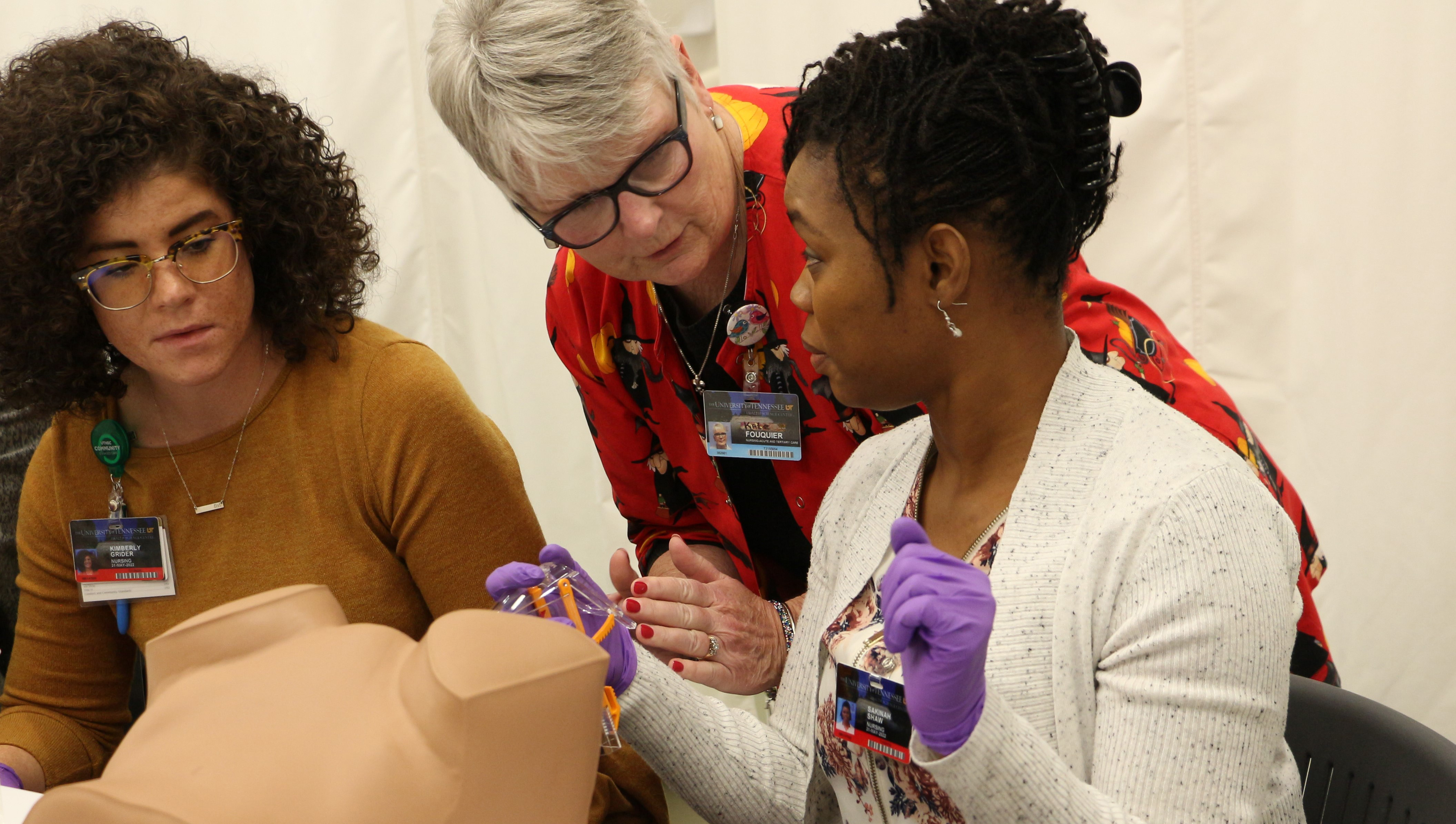DOI
10.21007/con.dnp.2024.0086
Faculty Advisor
Sally Humphrey, DNP, APRN, CPNP-PC
Subject Matter Expert
Sally Humphrey, DNP, APRN, CPNP-PC
Document Type
Poster
Publication Date
Spring 4-24-2024
Disciplines
Investigative Techniques | Medicine and Health Sciences | Nursing
Abstract
Background
Although more commonly diagnosed in adults, type 2 diabetes is increasingly diagnosed in pediatric populations in the United States. Research suggests a correlation between depression and type 2 diabetes, however, a gap in research exists regarding depression and type 2 diabetes among pediatrics, specifically adolescents. This scoping review aims to address this gap by assessing the impact of depression screening on glycemic control in this specific population.
Purpose
The goal of the review is to contribute to the development of effective strategies for depressing screening in adolescents with type 2 diabetes, with the expectation this may positively impact glycemic control.
Methods
Between August 2022 and November 2023, a journal review was conducted to identify studies that examined adolescent depression in those with a type 2 diabetes mellitus diagnosis. Individual searches were conducted across various sources such as PubMed, Medline, and CINAHL. The following keywords were used to identify articles: adolescent, youth, depression, type 2 diabetes, depression screening, standardized screening, glycemic control, and HbA1c.
Results
Thirteen articles were identified following rapid critical appraisal, which yielded a final selection of eleven articles used in this review. Prior studies have primarily been limited to either type 1 diabetes or adults without fully exploring the relationship of depression in adolescents with type 2 diabetes. Thirteen articles were identified, yielding a final selection of 11 articles after rapid critical analysis used in this review. These consisted of five cohort studies, two descriptive studies, and four quality-improvement studies. All studies completed baseline depression screenings while most obtained HbA1c, but less than half examined any relationship between the two, yielding inconsistent findings.
Implication for Nursing Practice
The outcomes in this scoping review identified that more research is needed to establish any correlation between depression screening and type 2 diabetes. The articles used in this scoping review evaluated HbA1c measurement, glycemic control, and mood regulation in the adolescent population but not how they co-relate. These findings support the idea that incorporating depression screenings at regular intervals into the care of adolescents with type 2 diabetes may help providers prioritize both the physical and mental health of at-risk patients.
Recommended Citation
Coleman, Mykyla BSN,RN; Conlee, Chelsea BSN,RN; Gracia, Carol MSN, APRN, FNP-BC; Jennewine, Emily MSN, APRN, CPNP-PC, IBCLC; and Humphrey, Sally DNP, APRN, CPNP-PC , "Depression Screening in Type 2 Diabetes in Adolescent 12-18 Year Olds" (2024). Doctor of Nursing Practice Projects. Paper 86. http://dx.doi.org/10.21007/con.dnp.2024.0086.
https://dc.uthsc.edu/dnp/86



Comments
References Benson, J., Severn, C., Hudnut-Beumler, J., Simon, S. L., Abramson, N., Shomaker, L. B., Gulley, L. D., Taylor, A., Kelsey, M. M., Nadeau, K. J., Zeitler, P. S., Pyle, L., & Cree-Green, M. (2020). Depression in Girls with Obesity and Polycystic Ovary Syndrome and/or Type 2 Diabetes. Canadian Journal of Diabetes, 44(6), 507-513. https://doi.org/10.1016/j.jcjd.2020.05.015
Coccaro, E. F., Drossos, T., & Phillipson, L. (2016). HbA1c levels as a function of emotional regulation and emotional intelligence in patients with type 2 diabetes. Primary Care Diabetes, 10(5), 334-341. https://doi.org/10.1016/j.pcd.2016.05.006
Gao, Y., Xiao, J., Han, Y., Ji, J., Jin, H., Mawen, D. G., Zhong, Y., Lu, Q., Zhuang, X., & Ma, Q. (2022). Self-efficacy mediates the associations of diabetes distress and depressive symptoms with type 2 diabetes management and glycemic control. General Hospital Psychiatry, 78, 87-95. https://doi.org/10.1016/j.genhosppsych.2022.06.003
Hoffman, R. P., Damilano, C. P., Hong, K. M. C., Glick, B. A., & Kamboj, M. K. (2022). Glycemic control, depression, diabetes distress among adolescents with type 2 diabetes: effects of sex, race, insurance, and obesity. Acta Diabetologica, 59(8), 1083-1089. https://doi.org/10.1007/s00592-022-01902-2
Marker, A. M., Patton, S. R., McDonough, R. J., Feingold, H., Simon, L., & Clements, M. A. (2019). Implementing clinic-wide depression screening for pediatric diabetes: An initiative to improve healthcare processes. Pediatric Diabetes, 20(7), 964-973. https://doi.org/10.1111/pedi.12886
Picozzi, A., & DeLuca, F. (2019). Depression and glycemic control in adolescent diabetics: evaluating possible association between depression and hemoglobin A1c. Public Health, 170, 32-37. https://doi.org/10.1016/j.puhe.2019.02.005
Roberts, A. J., Bao, H., Qu, P., Moss, A., Kim, G., Yi-Frazier, J. P., Pihoker, C., & Malik, F. (2021). Mental health comorbidities in adolescents and young adults with type 2 diabetes. Journal of Pediatric Nursing, 61, 280-283. https://doi.org/10.1016/j.pedn.2021.07.028
Shomaker, L. B., & Goodman, E. (2015). An 8-Year Prospective Study of Depressive Symptoms and Change in Insulin from Adolescence to Young Adulthood. Psychosomatic Medicine, 77(8), 938-945. https://doi.org/10.1097/psy.0000000000000230
Shomaker, L. B., Cox, S., Lehman, D. P., Kelly, N. R., Thompson, K. A., Mehari, R. M., Brady, S. M., Galescu, O. A., Demidowich, A. P., Chen, K. Y., Tanofsky-Kraff, M., & Yanovski, J. A. (2020). Depressive symptoms in adolescent girls at-risk for type 2 diabetes and their parents. Psychol Health Med, 25(5), 530-540. https://doi.org/10.1080/13548506.2019.1687914
Suglia, S. F., Demmer, R. T., Wahi, R., Keyes, K. M., & Koenen, K. C. (2016). Depressive Symptoms During Adolescence and Young Adulthood and the Development of Type 2 Diabetes Mellitus. American Journal of Epidemiology, 183(4), 269-276. https://doi.org/10.1093/aje/kwv149
Van Buren, D. J., Wilfley, D. E., Marcus, M. D., Anderson, B., Abramson, N. W., Berkowitz, R., Ievers-Landis, C., Trief, P., Yasuda, P., & Hirst, K. (2018). Depressive symptoms and glycemic control in youth with type 2 diabetes participating in the TODAY clinical trial. Diabetes Research Clinical Practice, 135, 85-87. https://doi.org/10.1016/j.diabres.2017.11.008